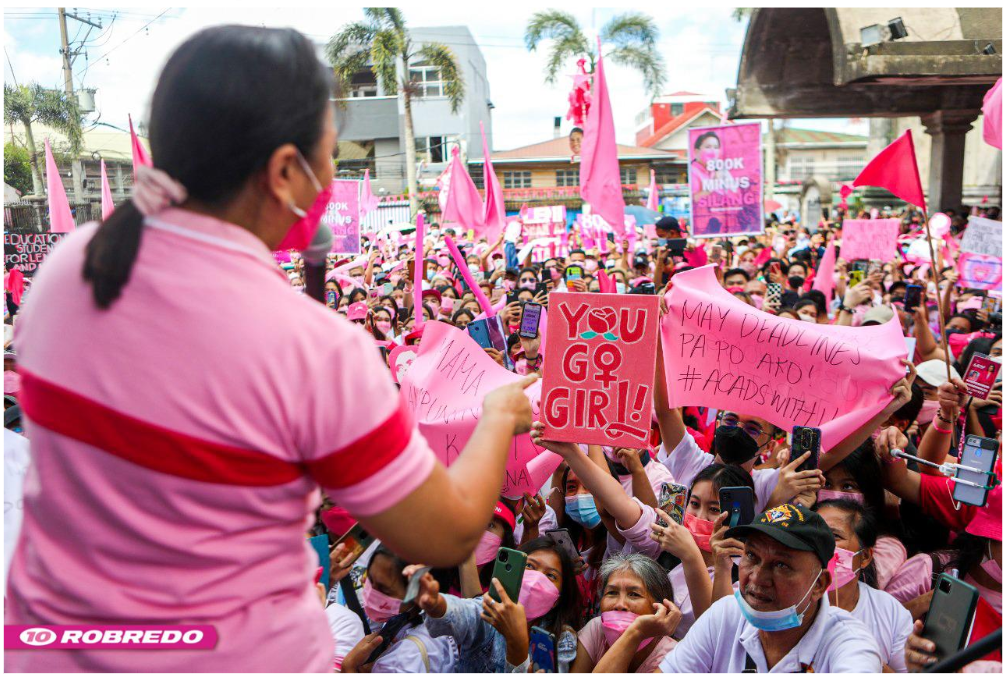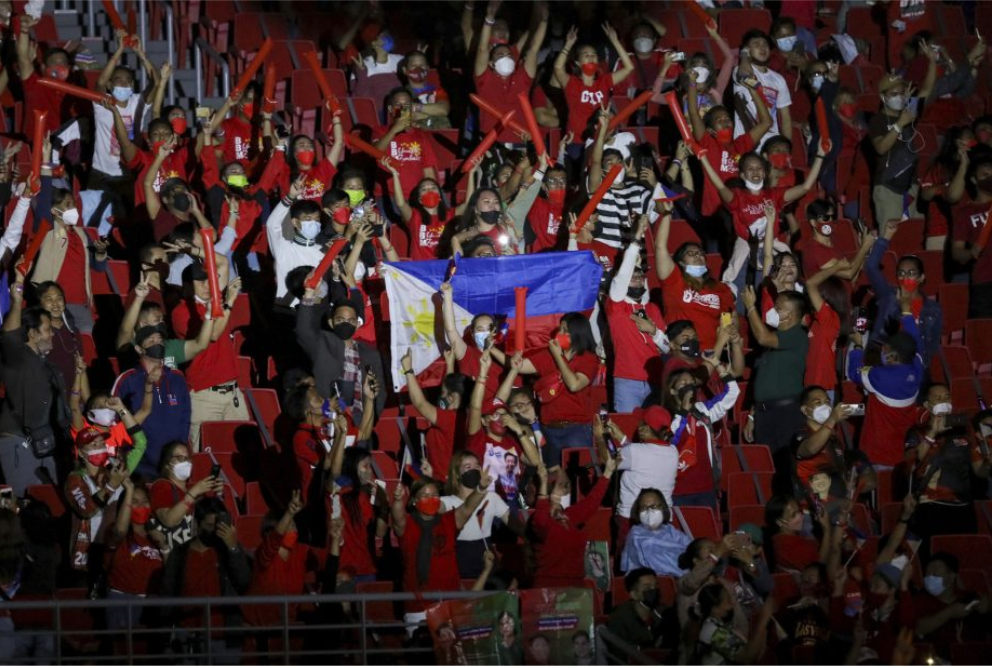Philippine Presidential Election Campaigns Face Social Media Disinformation and COVID Restrictions
Presidential candidate Robredo at a campaign event in Cavite, Philippines. Photo: VP Leni Robred on Facebook
This year's Philippine electoral candidates are facing increasing barriers to a free and fair election, despite the significance of this election to the democratic state of the nation. Campaigning, which started just over a month ago, has been largely shaped by coronavirus measures. The issue is garnering international attention, both online and offline.
Thus far, approximately 68 percent of Filipinos have received the COVID vaccine, and only about 362 new cases are reported each day. While this means infection rates are down to 1 percent of their peak, some restrictions are still in place, including bans on tightly-packed crowds, hugging and handshakes, and a face mask requirement in public spaces. Elections Commissioner George Garcia has publicly pushed for compliance with these measures despite the limits they put on campaign event attendance.
“While we have eased restrictions, it doesn’t mean there can be super-spreader events,” Garcia warned the press earlier this week. However, in the heat of election season, much of the in-person campaigning still ends up violating COVID guidelines. Even when campaign events start off following mask and social distancing measures, they frequently devolve into potential health hazards as voters try to greet and photograph their candidates of choice. Many events that draw large crowds aren’t even COVID-compliant to begin with.
The biggest shift that electoral campaigns have made towards COVID compliance has been an increased use of social media, which has yielded mixed results in terms of creating a more balanced election.
On one hand, trolls, bots, and propaganda are rampant on social media, and are often able to gain a sizable amount of traction under the guise of being “normal” users and posts. President Rodrigo Duterte is regarded as being the first Filipino president to have a social media-based campaign, and it was infamously based on misinformation and “fake news.” Current presidential candidate Ferdinand “Bongbong” Marcos has been accused of utilizing similar tactics.
Pro-Marcos and Duterte rally in the Bulacan province, Philippines. Photo: AP Photo/Basilio Sepe
On the other hand, social media allows its users to voice their support for other candidates on a much larger scale, and current presidential candidate, Vice President Leni Robredo, has been able to gain a significant amount of visibility on social media sites.
Social media campaigning has also helped the race gain international attention. Earlier this month, Ariana Grande reposted a video of thousands of Robredo supporters singing her song “Break Free” at a rally, helping the footage go viral among non-Filipino fans.
In New York City alone, hundreds of Filipinos and Filipino-Americans have marched in support of their candidates of choice. On Sunday, a Walk for Democracy was held in support of candidate Robredo, and in and out of state supporters marched from Bryant Park to the Philippine Consulate. Pro-Duterte events by the Filipino-Americans Against Crime and Terrorism have recieved less attendance and media attention, but are backed by the consulate and a large community of Filipino-American conservatives.
Elections in the Philippines already use a minority voting system, where the candidate with the highest number of votes wins, regardless of whether they receive a majority of votes. Elections also don’t rely on a party system, and instead allow for presidential candidates to run separately from the vice presidential candidates, define their ideologies without the backing of a specific historical party’s platform, and build campaigns based off of their familial and celebrity reputations.
Instead of increasing citizens’ ability to vote freely however, these policies have empowered politicians lacking popular support (President Duterte only received 39 percent of the vote in 2016), as well as those with the money, fame, and other non-political means to gain votes. In the current elections, the campaigns for Ferdinand “Bongbong” Marcos, Sara Duterte-Carpio, Francisco “Isko Moreno” Domagoso, and Manny Pacquiao have been bolstered by fame.


